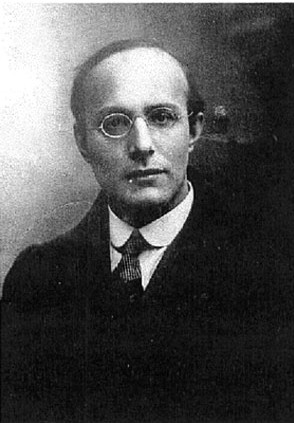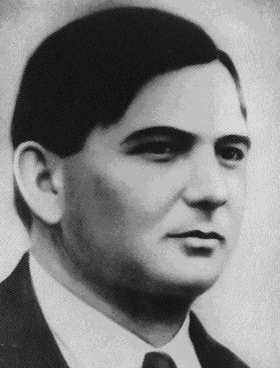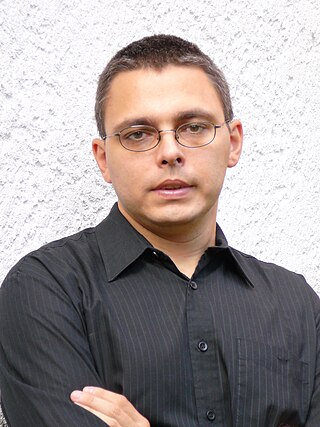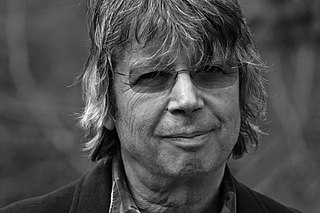Related Research Articles

Michael Polanyi was a Hungarian-British polymath, who made important theoretical contributions to physical chemistry, economics, and philosophy. He argued that positivism supplies an imperfect account of knowing as no observer is perfectly impartial.
Karl Mannheim was an influential Hungarian sociologist during the first half of the 20th century. He is a key figure in classical sociology, as well as one of the founders of the sociology of knowledge. Mannheim is best known for his book Ideology and Utopia (1929/1936), in which he distinguishes between partial and total ideologies, the latter representing comprehensive worldviews distinctive to particular social groups, and also between ideologies that provide outdated support for existing social arrangements, and utopias, which look to the future and threaten to transform a society.

Adrien Nicholas Brody is an American actor. He received widespread recognition and acclaim after starring as Władysław Szpilman in Roman Polanski's The Pianist (2002), for which he won the Academy Award for Best Actor at age 29, becoming the youngest actor to win in that category. Brody is the second male American actor after Christopher Lambert to receive the César Award for Best Actor.

Michael James Duff FRS, FRSA is a British theoretical physicist and pioneering theorist of supergravity who is the Principal of the Faculty of Physical Sciences and Abdus Salam Chair of Theoretical Physics at Imperial College London.

Béla Bollobás FRS is a Hungarian-born British mathematician who has worked in various areas of mathematics, including functional analysis, combinatorics, graph theory, and percolation. He was strongly influenced by Paul Erdős since the age of 14.
Michael Boris Green is a British physicist and a pioneer of string theory. He is Professor of Theoretical Physics in the School of Physics and Astronomy at Queen Mary University of London, emeritus professor in the Department of Applied Mathematics and Theoretical Physics and a Fellow of Clare Hall, Cambridge. He was Lucasian Professor of Mathematics from 2009 to 2015.

Karl Paul Polanyi, was an Austro-Hungarian economic anthropologist and politician, best known for his book The Great Transformation, which questions the conceptual validity of self-regulating markets.

Ágnes Heller was a Hungarian philosopher and lecturer. She was a core member of the Budapest School philosophical forum in the 1960s and later taught political theory for 25 years at the New School for Social Research in New York City. She lived, wrote and lectured in Budapest.

Imre Bródy was a Hungarian physicist who invented in 1930 the krypton-filled fluorescent lamps , with fellow-Hungarian inventors Emil Theisz, Ferenc Kőrösy and Tivadar Millner. He developed the technology of the production of krypton bulbs together with Michael Polanyi. He was the nephew of writer Sándor Bródy.
Charles Armor McClelland was an American political scientist, systems analyst and Professor International Relations at the San Francisco State University, who was among the first to introduce General Systems Theory in the field of International Relations.
Travis Brody is a former American football quarterback who played for the Brussels Bulls of the Belgian Football League (BFL). He attended Occidental College and Los Alamitos High School in California.
Lane P. Hughston is an American mathematician.

György Dragomán is a Hungarian author and literary translator. His best-known work, The White King (2005) has been translated to at least 28 languages.
Hugh Brody is a British anthropologist, writer, director and lecturer. He was educated at Trinity College, Oxford. He taught social philosophy at Queen's University Belfast. He is an Honorary Associate of the Scott Polar Research Institute at the University of Cambridge, and an Associate of the School for Comparative Literature at the University of Toronto. He held the Canada Research Chair at University of the Fraser Valley in Abbotsford, British Columbia from 2004 to 2018. He is Honorary Professor of Anthropology at the University of Kent, Canterbury.

T. P. "Peter" Brody was a British-naturalised physicist and the co-inventor of Active Matrix Thin-Film Transistor display technology together with Fang-Chen Luo, having produced the world's first Active Matrix Liquid Crystal Display (AM-LCD) in 1972 and the first functional AM-EL in 1973 while employed by Westinghouse Electric Corporation in Pittsburgh. Brody coined the term "active matrix" and first used it in a published journal article in 1975.

The Budapest School was a school of thought, originally of Marxist humanism, but later of post-Marxism and dissident liberalism that emerged in Hungary in the early 1960s, belonging to so-called Hungarian New Left. Its members were students or colleagues of Georg Lukács. The school was originally oriented towards developing Lukacs' later works on social ontology and aesthetics, but quickly began to challenge the paradigm of Lukacsian-Marxism, thus reconstructing contemporary critical theory. Most of the members later came to abandon Marxism. The school also critiqued the "dictatorship over needs" of the Soviet states. Most of the members were forced into exile by the pro-Soviet Hungarian government.

János Kristóf Bródy is a Hungarian pop singer-songwriter, guitarist, composer and scriptwriter. Successful both with the bands Illés and Fonográf and in his solo career, writing lyrics for singers like Zsuzsa Koncz or for rock operas like István, a király, he was a major figure of the Hungarian music scene in the 60s–90s.

György Lukács was a Hungarian Marxist philosopher, literary historian, critic, and aesthetician. He was one of the founders of Western Marxism, an interpretive tradition that departed from the Marxist ideological orthodoxy of the Soviet Union. He developed the theory of reification, and contributed to Marxist theory with developments of Karl Marx's theory of class consciousness. He was also a philosopher of Leninism. He ideologically developed and organised Lenin's pragmatic revolutionary practices into the formal philosophy of vanguard-party revolution.
Richard Brody is an American film critic who has written for The New Yorker since 1999.
Dorje C. Brody is a British applied mathematician and mathematical physicist.
References
- Brody, Michael (1995). Lexico-logical Form: A Radically Minimalist Theory. MIT Press.